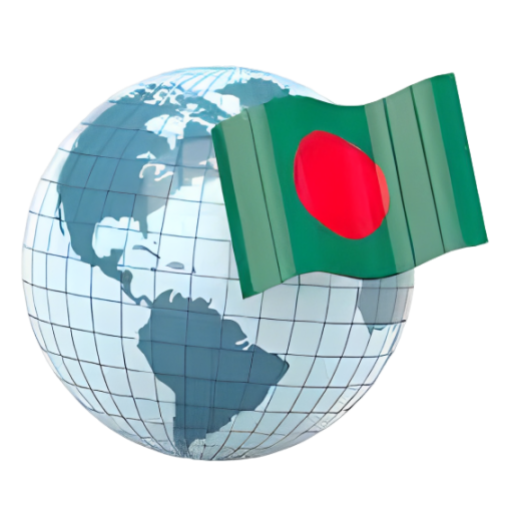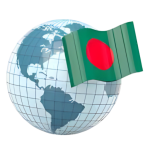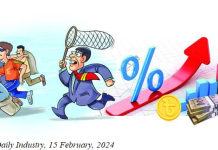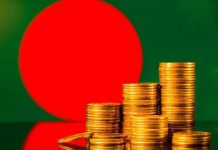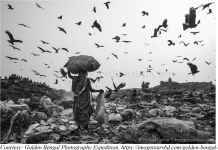The ailing banking sector has become a major drag on the Bangladesh economy. A fundamental cause of the ailment is the rising default loans in the banking sector. Salehuddin Ahmed, a professor at BRAC university and a former governor of the Bangladesh Bank, explores rising trends in default loans in private as well as public banks. He highlights the negative consequences of default loans for the economy such as higher interest rates, lower investment, lower taxes, lower government spending, and higher inflation. He emphasises the connection between money laundering and default loans. He also underscores the fact that most loan defaulters are politically connected, thus making attempts at recovering defaulted loans ineffective.
As the economy of Bangladesh has become globalized through trade and finance, external borrowing and debt have increased. Indeed, increased interest payments on external debt has drawn the attention of researchers. Mustafizur Rahman, Distinguished Fellow at the Centre for Policy Dialogue, examines trends in external debt since 2015. He highlights the surge in interest payments since 2022. He also illuminates the underlying drivers of rising interest payments such as the graduation of Bangladesh from a low-income country to a lower-middle income country, the increased share of non-concessional external loans, shifts from multilateral to bilateral sources of loans, and increases in interest rates in the post-Covid world. Dr. Rahman also makes recommendations to manage external debts in order to avoid problems associated with external debts – problems that plagued many developing countries, such as Sri Lanka.
The expression “Shonar Bangla” (Golden Bengal) has become an ingrained part of the Bangla folklore, implying the richness of natural, cultural, and economic endowments of Bengal. Yet Bengal has had a chequered history with prosperity for the rich and poverty and famines for the ordinary people. While Bengal was financing imperial luxuries, including the colonial power Britain’s prosperity, the majority of the people did not have purchasing power. A hot-spot of slave trade, people were forced to sell themselves or their children at paltry prices under duress, especially when crop failed due to floods. Anis Chowdhury explores the myths and realities concerning the epithet “Shonar Bangla”. The “Shonar Bangla” slogan was coined by Rabindranath Tagore to energize the Bengali Hindu middle class who was opposing the division of Bengal into Hindu-majority West Bengal and Muslim-Majority East Bengal by the colonial administration in 1905. Ever since the epithet remains a political slogan amidst growing wealth concentration by a few politically connected elites and pauperization of a great majority of commoners.
Regional economic and trade blocs are seen as essential for economic prosperity. Thus, the South Asian Association for Regional Cooperation (SAARC) was established in 1985 to promote trade and investment among South Asian countries. In 1997, another economic bloc, the Bay of Bengal Initiative for Multi-Sectoral Technical and Economic Cooperation (BIMSTEC) was formed to promote regional economic integration in light of apparent ineffectiveness of the SAARC due to mistrust between India and Pakistan. Kamal Uddin Ahmed describes the activities and goals of the BIMSTEC comprising seven countries, namely Bangladesh, Bhutan, India, Myanmar, Nepal, Sri Lanka and Thailand. He highlights the point that the BIMSTEC could be a bridge between South Asia and South East Asia. He also underscores Bangladesh’s pivotal role in the BIMSTEC with its Secretariat being located in Dhaka.
Many Bangladeshi expatriates are contributing toward the development of Bangladesh in various ways. Farid Shariff, a leading orthopaedic surgeon in Winnipeg, Canada, made an outstanding contribution in promoting computer literacy in a high school in his village in Chittagong. He narrates how computer literacy has made a difference in learning through computer literacy centres and smart class rooms in the school. He could accomplish this with the help of the New Jersey (USA)-based Computer Literacy Program (CLP) of Bangladeshi expatriate volunteers for the underprivileged.
Desh Ferot (a pen name) presents a powerful and inspirational story about how Bangladeshi expatriates can contribute to the development of Bangladesh, based on his own experience as an engineer. Taking a life course approach, he delineates possible strategies for different age groups of Bangladeshi expatriates.
Empowerment of women is a hallmark of Bangladesh’s development. As highlighted in a recent report of the IMF, gender equality is crucial for sustained and inclusive economic development. Farah Nawaz and Dabjani Saha highlight various government programmes to promote financial independence of working women. Yet, they also note the persistence of gender gaps that inhibit empowerment of working women in Bangladesh.
Protection of the environment and maintenance of ecological balance remain neglected in the discourse on development. Kamrul Hasan focuses on amphibians such as frogs and toads and their habitats in Bangladesh. He highlights existential threats facing amphibians from industrial pollution, deforestation, use of fertiliser and pesticides and their consequences for ecological stability.
Australia has become a major host country for Bangladeshi immigrants. Some expatriates in Australia played a prominent role in serving the needs of expatriates and also in maintaining ties with Bangladesh. Mostafa Abdullah recognizes the contributions of Dr. Abdul Haq, a pioneer among the Bangladeshi expatriates in Australia. He highlights various contributions of Dr. Haq in Sydney including initiating a flagship programme called “Good Morning Bangladesh.” Dr. Huq also was involved in raising funds for a cancer hospital in Bangladesh. Dr. Haq’s exemplary social and community work has been recognized by the Australian parliament and the provincial parliament of New South Wales. The local city council has dedicated a park to Dr. Haq.
In recent years, Italy has become a notable destination for many Bangladeshi workers. Mohsin Ali describes the journey of Alam (a pseudonym) from Pabna, Bangladesh to Rome. He narrates Alam’s challenges and opportunities and the minutiae of his life in Rome – common for most Bangladeshis in search of a better life overseas.
Pohela Boishakh is celebrated with increased fervour in Bangladesh and abroad. Chowdhury Salahuddin Mahmood provides pictorial glimpses into various dimensions of Boishakhi Melas in Dallas, Texas.
The final article in this issue by Golam Sarwar explores various sites related to William Shakespeare in Stratford-upon- Avon, where Shakespeare was born. This small town, where Shakespeare is the foremost “industry”, is a major tourist destination. Interestingly, Shakespeare’s Garden includes a bronze bust of Rabindranath Tagore with the inscriptions of a poem in Bengali and English written by Rabindranath in 1916 in praise of Shakespeare on his 300th death anniversary.
Note: The deadline for submitting articles for the 3rd issue of Volume 2 of Global Bangladesh is 31 August, 2024.
